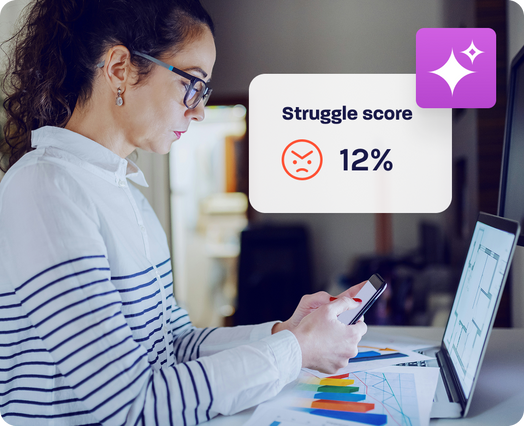
Buy now pay later: How are regulators responding?
Buy now pay later (BNPL) products offer customers short-term, interest-free loans that can spread payments for goods over a period of time. More and more companies are developing their own BNPL functionality. Apple, for example, has announced that Apple Pay Later will be introduced in the US, allowing customers to spread the cost of purchases into four payments across six weeks (source). Use of BNPL in 2020 across the UK accelerated massively with 11% of consumers (five million individuals) claiming they had used a BNPL product since the Covid-19 outbreak (source). Similarly in the US, BNPL spiked during the pandemic with Black Friday and Cyber Monday contributing to the increase (source). As of March 2021, 56% of Americans had used a BNPL product (source).
Although BNPL is a global phenomenon, this blog focuses on the effects BNPL products in the UK and US have on consumers and the regulatory response.
Buy now pay later in the UK
BNPL products are not currently under the regulatory scope of the FCA. However, with their recent accelerated uptake and risks these products pose to consumers, the FCA has started to develop its response.
The Woolard Review, released in February 2021, indicated how the FCA is aiming to regulate the sector. While the review did acknowledge that BNPL can offer a cheaper alternative to high-cost short-term credit (HCST), it also recognized considerable risks with their usage (source). These risks related to the potential high-levels of debt they can create; almost a third of UK BNPL users claimed payments on the loans have become ‘unmanageable’ (source). Additionally, the Woolard Review suggested there is an overall lack of consumer awareness of the risks associated with using BNPL products.
How the regulator is responding to buy now pay later
The Woolard Review recognized that BNPL firms need to be regulated. The FCA remains cautious in how it will enact any regulatory frameworks, but the Woolard Review reveals what these may look like. Firstly, it is likely that BNPL firms will have to impose affordability checks on prospective customers. This will help reduce risks of customers racking up high levels of debt which they may struggle to repay. Secondly, firms will have to impose measures to monitor affordability checks on an ongoing basis for repeat customers. This would protect customers and ensure that firms were offering their services to customers without affordability concerns. Thirdly, customers will be able to raise complaints to the Financial Ombudsman Service (FOS); further ensuring that consumer interests are protected.
The FCA’s proposals demonstrate that the regulator recognizes the need to protect consumer interests. The new Consumer Duty highlights the need for firms to ensure that customers obtain good outcomes from the use of their product (source). These regulatory proposals will mean BNPL firms must comply with consumer protection regulation, including The Consumer Rights Act 2015 (CRA) (source).
Buy now pay later in the US
In contrast to the UK, the US has not developed any significant regulatory strategy addressing BNPL. The US remains in a categorization dilemma with BNPL products as they are unclear whether to treat them as traditional loan providers.
Nevertheless, the Consumer Financial Protection Bureau (CFPB) is also troubled by the risks that BNPL presents to consumers. As in the UK, the main concern is the level of debt that customers are accumulating without necessarily being aware of it. Additionally, the CFPB is suspicious of regulatory arbitrage with some BNPL firms not adequately evaluating what consumer protection laws apply to their products. There are also concerns regarding data harvesting with some BNPL firms partnering with shopping merchants to push specific brands dependent upon past purchasing experience.
How the regulator is responding to buy now pay later
Following its 2021 inquiry into the sector, the CFPB released its findings and proposals.
The CFPB wants BNPL firms to adopt ‘standardized furnishing codes’ (source). BNPL firms would be required to provide consumer information that is both positive and negative to nationwide consumer reporting companies (NCRCs). Furthermore, the CFPB wants credit scoring companies to create models that account for ‘BNPL loans’ unique characteristics.’ Experian, for example, is set to introduce The Buy Now Pay Later Bureau which will protect consumer credit scores from negative impact and drive more responsible lending.
How will these regulatory proposals impact buy now pay later firms?
The UK and US are at different stages of their BNPL regulatory journey. The UK is more definitive over how to categorize and treat BNPL firms while the US is at a more preliminary stage.
In the UK, accountability checks will need to be adopted into the way BNPL firms onboard customers. Currently, BNPL firms such as Klarna are experiencing higher defaults on their loans than ever amidst the cost-of-living crisis; more rigorous affordability checks will help prevent these defaults. In the long-term, these proposals will protect firms from potentially risky customers, while simultaneously preventing these customers from taking on debts they may be unable to afford. In the US, affordability checks are less pronounced. Firms will need to be more accountable and transparent in sharing data.
What does this mean for digital?
To comply with both regulators’ proposals, firms will need to maintain a record of digital journeys. Robust record keeping systems are going to be vital for giving BNPL firms the tools and data needed to investigate complaints, undertake reviews and identify and support potentially vulnerable customers.
BNPL products offer an alternative way for customers to purchase products. If used appropriately, they can offer a helpful way for customers to manage their finances, however, there are concerns that this is not always the case. How these proposed regulatory frameworks will impact the industry remains to be seen, but they are certainly much needed. To find out more information, download the eBook, Buy Now Pay Later: Risks and Regulatory Drivers.








